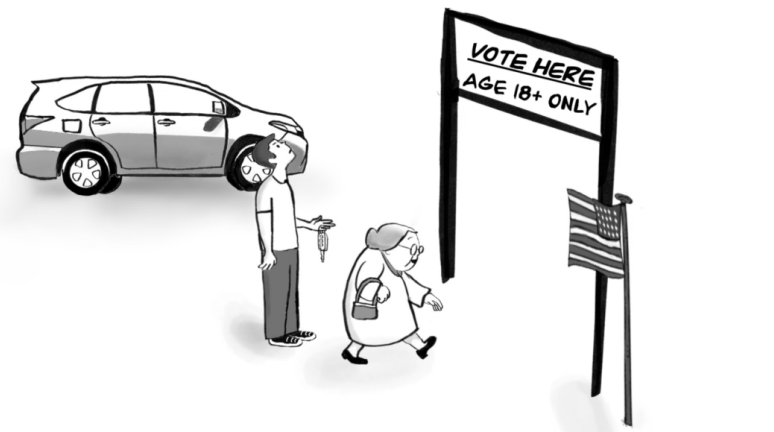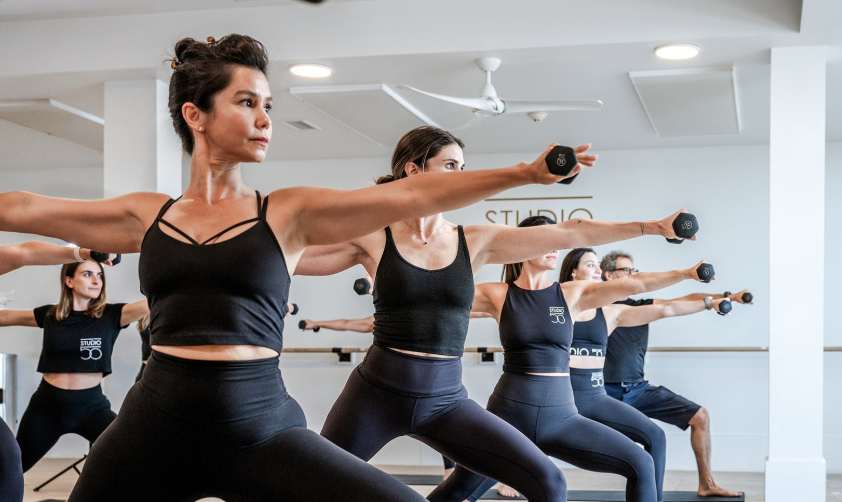As election day quickly approaches, some Mamaroneck High School students are being faced with the overwhelming opportunity to vote. As with every four years, the election has brought about discussion of America’s voting age and whether it should be maintained, lowered or raised.
The voting age was originally 21, along with the draft eligibility age for the military. During World War II, President Roosevelt lowered the draft age to 18 in an attempt to increase the size of the army. After this decision, arguments for lowering the voting age began to circulate. Many argued that if someone was old enough to die for their country, they were also old enough to play a role in their country’s policies.
Despite this, 53% of American high schoolers opposed lowering the voting age in 1943. These arguments didn’t gain much traction or widespread support until the 1960s, which featured the Vietnam War and growing teenage political participation in the civil rights, campus free speech, and women’s rights movements. By 1968, two-thirds of Americans agreed that 18, 1, and 20 year olds should be able to vote. Although Presidents Dwight D. Eisenhower and John F. Kennedy both spoke in favor of lowering the voting age , it was not until 1971 that the 26th amendment set the voting age at 18.
Fifty years later, in 2021, the United States had the highest young voter turnout since the ratification of the 26th amendment. In 2020, youth voter turnout was at one of the highest participation rates in decades. A study from Tufts’ Tisch College showed that, although specific percentages varied widely in different states, 50% of voters between 18 and 29 voted, compared to the 39% in 2016. Voter turnout is often lower among younger voters, which Mark Engler, in his Morningside Center article, blames on “inaccessible polling locations and hours, lack of access to transportation, restrictive identification policies” rather than a lack of interest in politics.
Some argue that the voting age should be lowered from 18, citing its potential to boost political engagement and representation. For one thing, many teenagers are affected by the issues other age groups are voting about, and many argue that this means they should have a say in these issues. In addition, lowering the voting age would hypothetically increase voting participation as a whole and raise the chances that more people vote in the future.
Since someone who votes in one election has a 13% greater chance of voting in a future one, developing these lifelong habits early would benefit the country in the long run. A study in the Annals of the American Academy of Political and Social Science concluded that “American adolescents manifest levels of development in each quality of citizenship that are approximately the same as those apparent in young American adults who are allowed to vote.”
On the other side of the argument, there is also evidence for keeping the voting age as it is, or even for raising it.
84% of registered voters were against lowering the voting age, likely due to fears of the immaturity of potential voters.
In addition, since many young voters are influenced by parents or teachers, some fear that these votes would simply act as repeats of their parents, instead of a fair and accurate assessment of what the larger population wants.
Vivek Ramaswamy, an entrepreneur and former presidential candidate, proposed raising the voting age to 25.
His plan specified that 18-24 year olds could vote if they passed a civic literacy test, unless they were in the military or first responders, in which case they could vote without a test. His critics have compared this policy to the restrictive voting tests from the Jim Crow era, and have complained that he is against young voters since they tend to lean more Democratic, and he is a Republican.
Another argument is that America is built on the idea of “no taxation without representation,” and in raising the voting age, the U.S. would either have to raise the age that people are taxed, or risk having a portion of the population contribute to the government without having a say in how it runs.
There are numerous countries around the world with both younger and older voting ages, and evidence has been inconclusive if one is more effective than the other.
It appears to be yet another issue that Americans can vote on, but for now, it seems the voting age will stay where it is, at 18.
Read the rest of the 2024 Election Special Editon here








